Search Our Whole site:
Just Search: Publications
Highlights
-
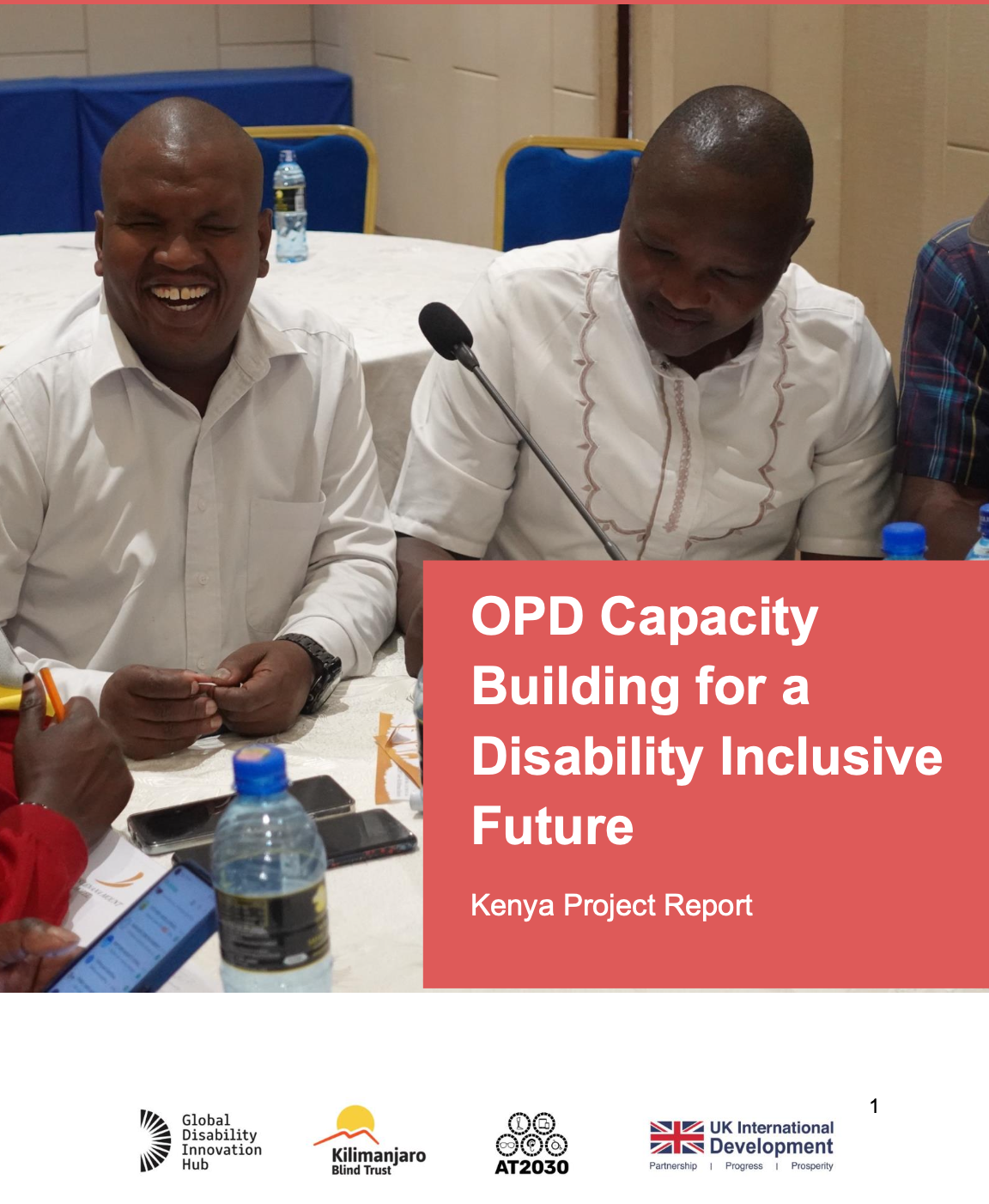
OPD Capacity Building for a Disability Inclusive Future Kenya Project Report
Louise Gebbett, Maryam Bandukda, Kilimanjaro Blind Trust, Amelie De Bronac De Vazelhes, David Osinya, Zeina Mahmoud,, Nicholas KalovweMarch 27, 2025KenyaCase Studies and ReportsKilimanjaro Blind Trust Africa (KBTA), in partnership with the Global Disability Innovation (GDI) Hub as part of the AT2030 programme, funded by UK International Development, implemented a project to strengthen the capacity of Organisations of Persons with Disabilities (OPDs) to enhance their advocacy, organisational effectiveness, digital literacy, and skills in assistive technologies (AT). To support this initiative, Kilimanjaro Blind Trust Africa (KBTA), led by Global Disability Innovation Hub, carried out a comprehensive needs assessment in three counties —Nairobi, Mombasa, and Kisumu — to identify the challenges OPDs face in these regions. The needs assessment gathered actionable insights that informed the development of targeted capacity-building interventions for OPDs.
-
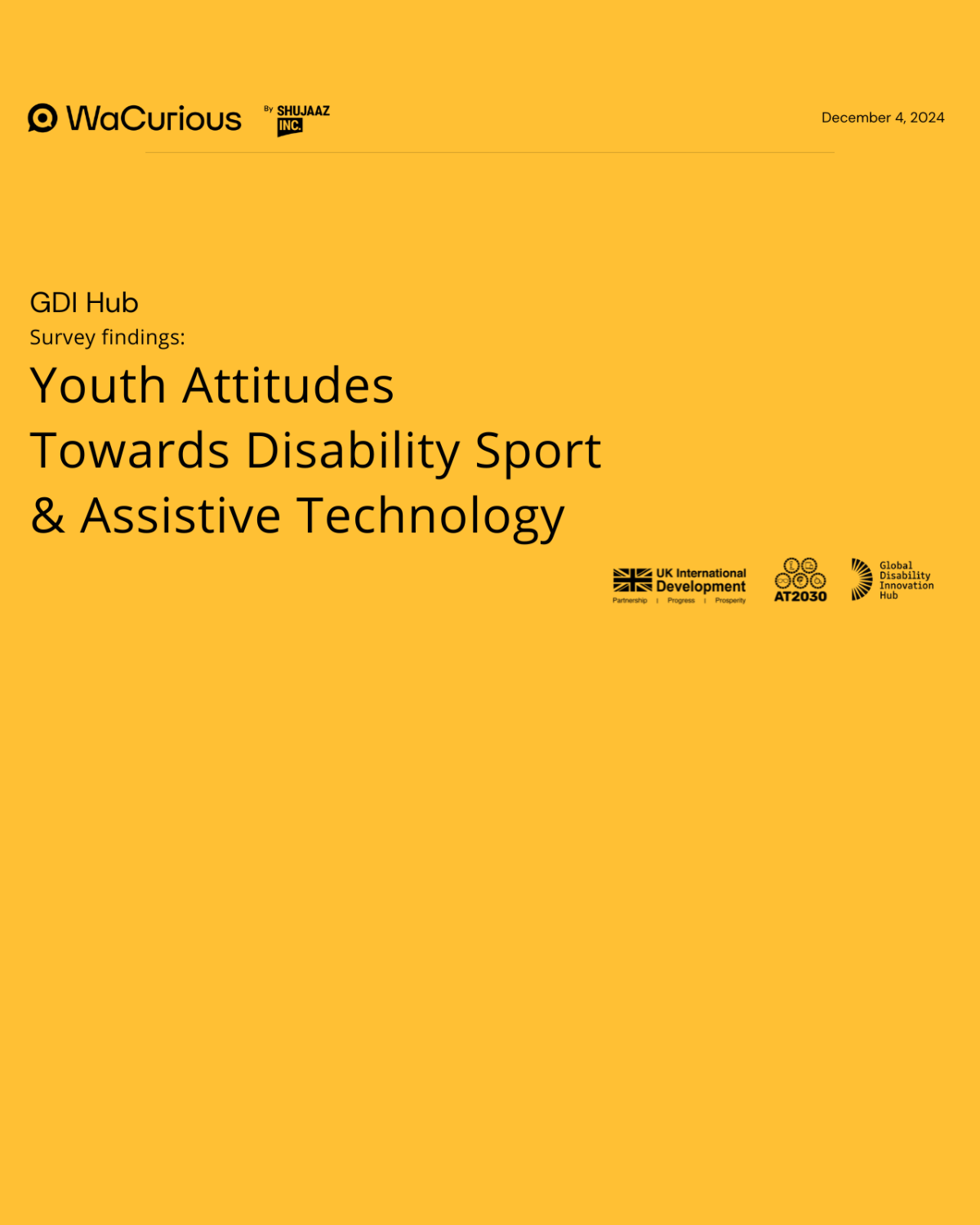
Youth Attitudes Towards Disability Sport & Assistive Technology
Shujaaz IncMarch 20, 2025Academic Research PublicationsThe 2024 Paralympic Games present a unique cultural moment to amplify the voices and stories of persons living with disabilities. To leverage this global event, the Global Disability Innovation Hub partnered with Shujaaz, an Emmy award winning partner based in Kenya to create a comprehensive initiative that explores and highlights the cultural impact of disability beyond the realm of sports.
-
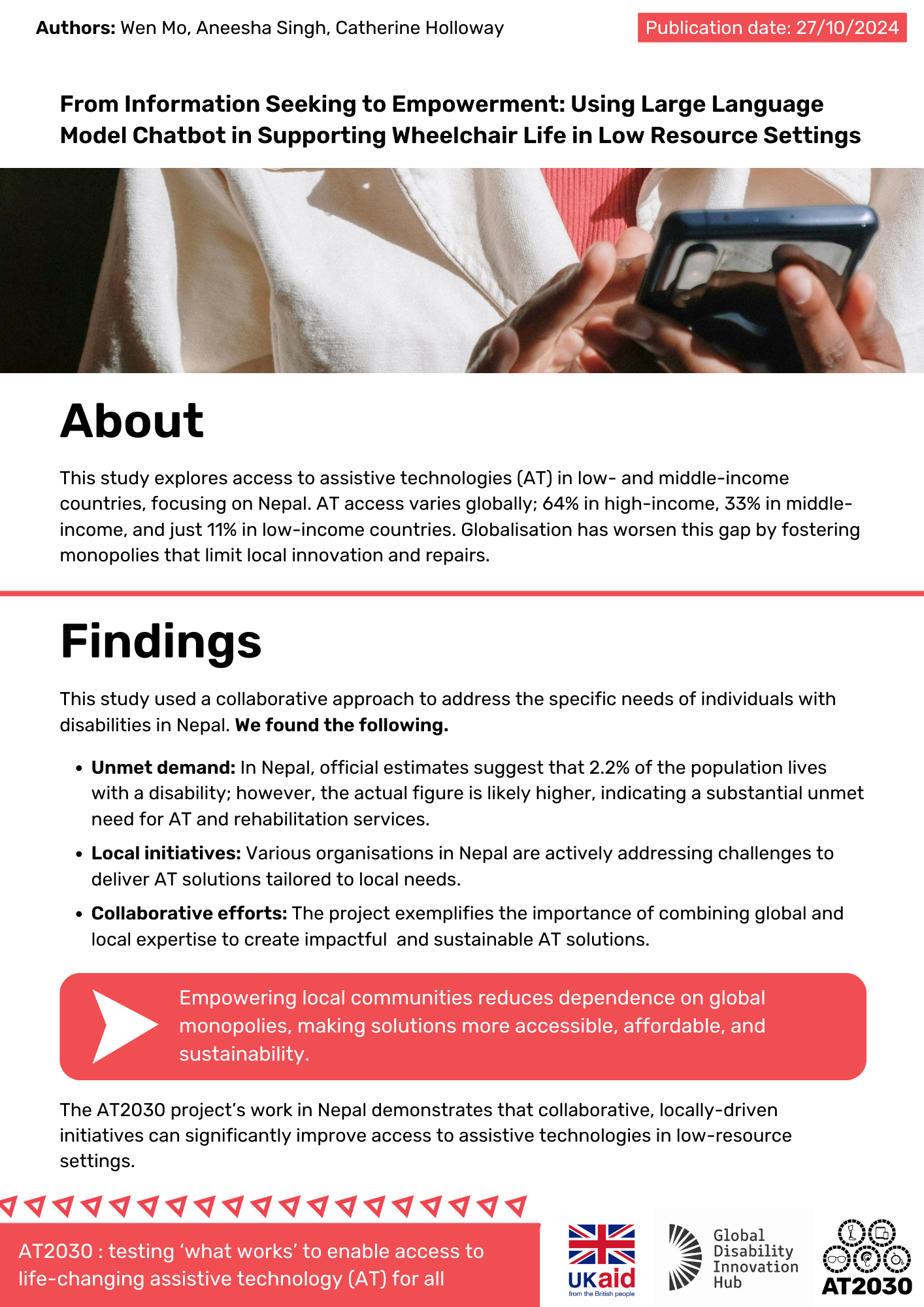
From Information Seeking to Empowerment: Using Large Language Model Chatbot in Supporting Wheelchair Life in Low Resource Settings - Research Summary
Wen Mo, Aneesha Singh, Catherine HollowayMarch 12, 2025Research SummariesThis study explores access to assistive technologies (AT) in low- and middle-income countries, focusing on Nepal, where access is much lower compared to high-income countries. Using a collaborative approach, the study found a significant unmet demand for AT in Nepal, with local initiatives successfully addressing specific needs. It highlights that combining global and local expertise creates sustainable solutions, reducing dependence on monopolies and improving accessibility and affordability.
-
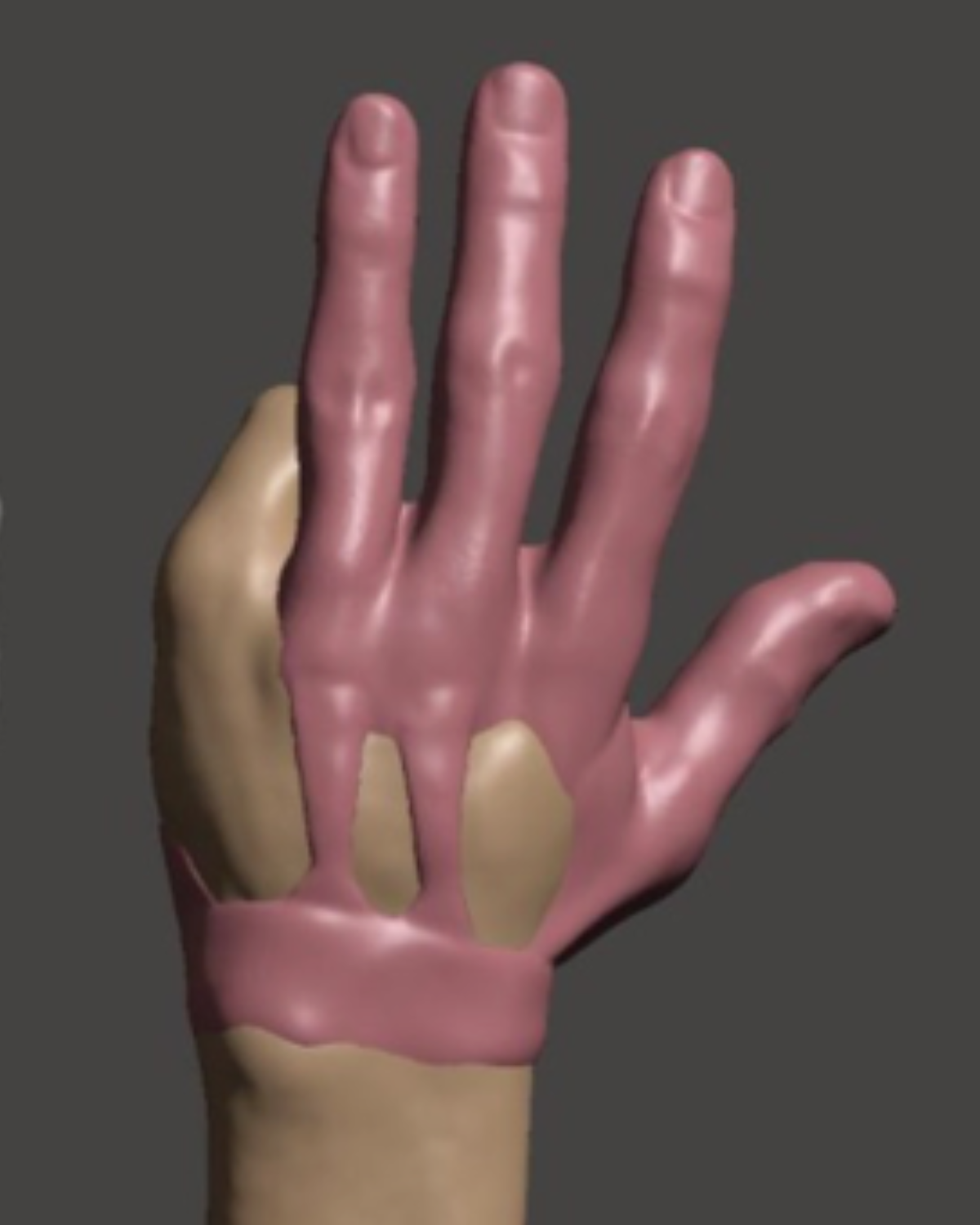
Locally Produced Prosthetics in Nepal
Dr Ben Oldfrey, RAM CHANDRA THAPA, Ashish Thapa, Bikash Paudel, Amit Bajracharya, Ganga Gurung, Rosemary Gowran, Pratisthit Lal Shrestha, Tigmanshu Bhatnagar, Mark Miodownik, Catherine HollowayFeb. 11, 2025NepalCase Studies and ReportsThese case study reports highlight locally produced prosthetics in Nepal, developed by GDI Hub, Zener Technologies, and the Enabling Fridays Community. The project blends global and local expertise to address individual needs, improve production processes, and foster innovation. This partnership evolved into a focused effort on assistive technologies, with two bespoke cases in Kathmandu featured in the reports.
-

Unlocking Sustainable and Resilient Assistive Technology Innovation and Delivery Ecosystems: Personalised Co-creation of Locally Produced Prosthetics: Research Summary
Dr Ben Oldfrey, RAM CHANDRA THAPA, Ashish Thapa, Bikash Paudel, Amit Bajracharya, Ganga Gurung, Rosemary Gowran, Pratisthit Lal Shrestha, Tigmanshu Bhatnagar, Mark Miodownik, Catherine HollowayJan. 9, 2025NepalResearch SummariesThe UK Aid-funded AT2030 project improved access to assistive technology in Nepal by developing locally produced prosthetics through collaboration between Nepali experts and global innovators. Emphasizing user-centred design, prosthetic users helped shape the final devices, ensuring they met both functional and personal needs. The project provided effective prosthetics while strengthening Nepal’s innovation capacity, securing further funding to expand the initiative.
-
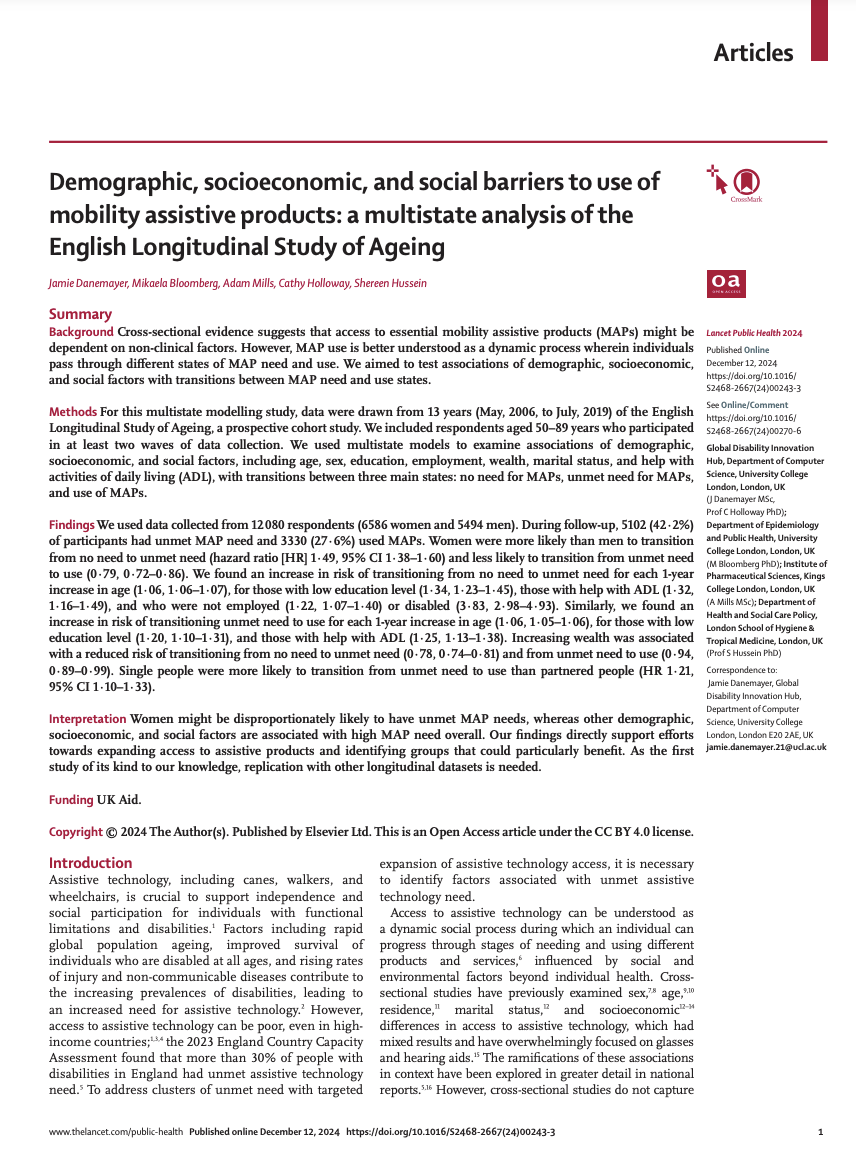
Demographic, socioeconomic, and social barriers to use of mobility assistive products: a multistate analysis of the English Longitudinal Study of Ageing
Jamie Danemayer, Mikaela Bloomberg, Adam Mills, Catherine Holloway, Shereen HusseinDec. 12, 2024Academic Research PublicationsFactors like age, gender, location, and socioeconomic status influence access to assistive technology. While much research focuses on devices like glasses and hearing aids, mobility aids (e.g., wheelchairs) often receive less attention despite growing demand. Understanding these access disparities is crucial for identifying the groups most in need of support and guiding better policies.
-
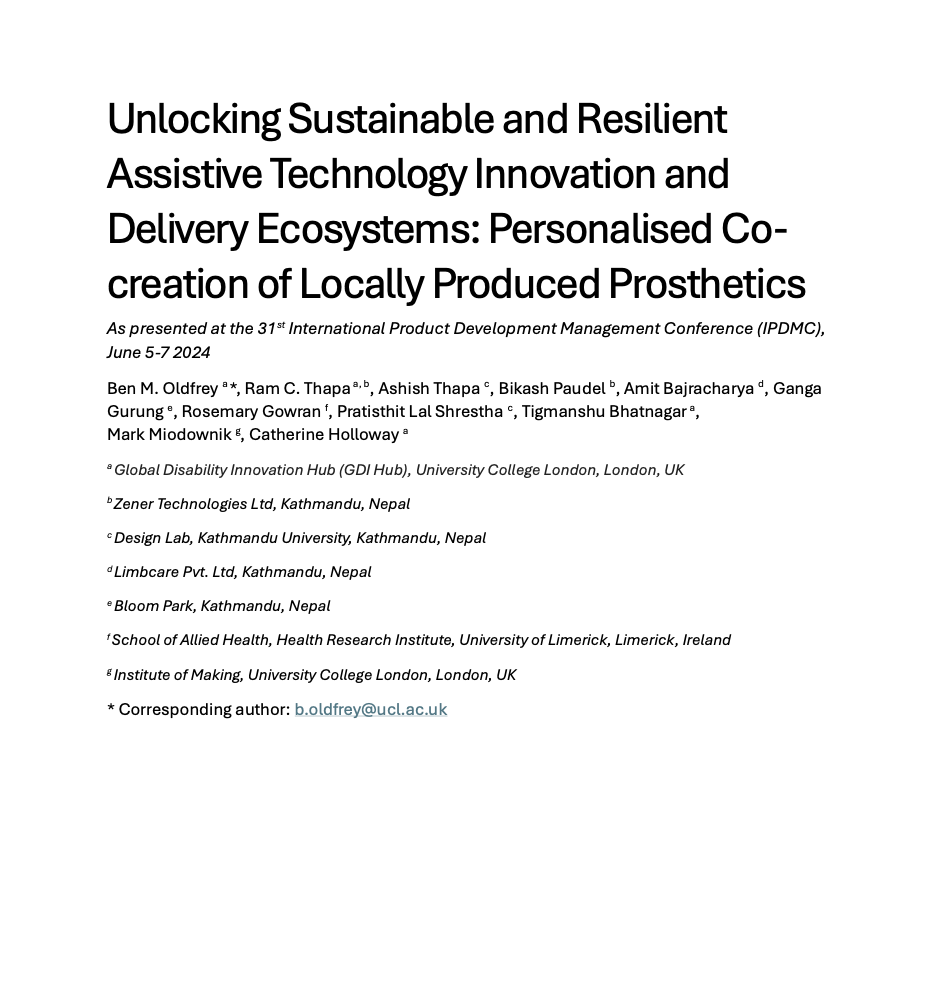
Unlocking Sustainable and Resilient Assistive Technology Innovation and Delivery Ecosystems: Personalised Co-creation of Locally Produced Prosthetics
Dr Ben Oldfrey, RAM CHANDRA THAPA, Ashish Thapa, Bikash Paudel, Amit Bajracharya, Ganga Gurung, Rosemary Gowran, Pratisthit Lal Shrestha, Tigmanshu Bhatnagar, Mark Miodownik, Catherine HollowayNov. 5, 2024NepalAcademic Research PublicationsThe World Health Organisation (WHO) reports significant disparities in access to assistive products, with 64% access in high-income countries compared to 33% in medium-income and 11% in low-income countries. The AT2030 Programme, led by the Global Disability Innovation Hub in Nepal, aims to enhance local innovation in assistive technology (AT). In Nepal, the estimated disability rate is only 2.2%, likely underestimated, as organisations work to provide tailored AT and rehabilitation services. This paper outlines our experiences in the AT2030 project, focusing on developing a global-local community, interdisciplinary innovation teams in Kathmandu, and preliminary findings from bespoke product development cases.
-
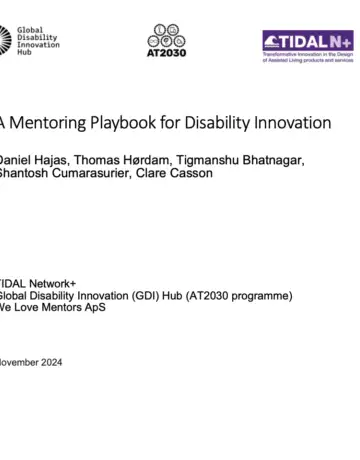
A Mentoring Playbook for Disability Innovation
Daniel Hajas, Thomas Hørdam, Tigmanshu Bhatnagar, Shantosh Cumarasurier, Clare CassonNov. 1, 2024AT2030 ResourcesThis playbook provides a comprehensive guide for organisations seeking to launch and manage mentoring programmes aimed at early career researchers (ECRs) and start-ups in the disability innovation sector. Rooted in the experiences of the TIDAL ECR Accelerator, insights from the Attvaran Accelerator, run by GDI Hub as part of the AT2030 programme, and We Love Mentors, this playbook outlines a practical and adaptable framework for fostering mentoring in a complex, yet essential, area of innovation.
-
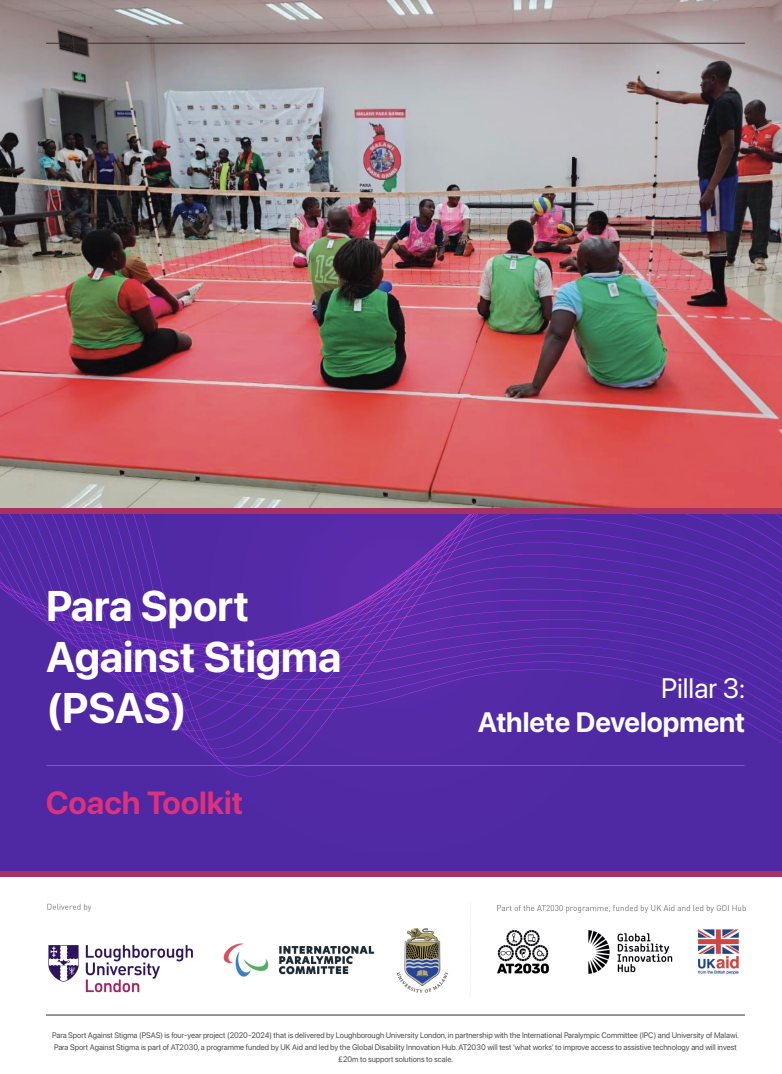
PSAS Coach Toolkit
Global Disability Innovation Hub, Loughborough University, The International Paralympic Committee (IPC), University of MalawiSept. 30, 2024MalawiAT2030 ResourcesThis toolkit is aimed at supporting coaches who work with disabled athletes within their national and international sporting systems. The toolkit is designed to provide useful information and step-by-step guides on important aspects of Para sport, such as classification systems and processes, competition requirements, coaching checklists and communication methods.
-
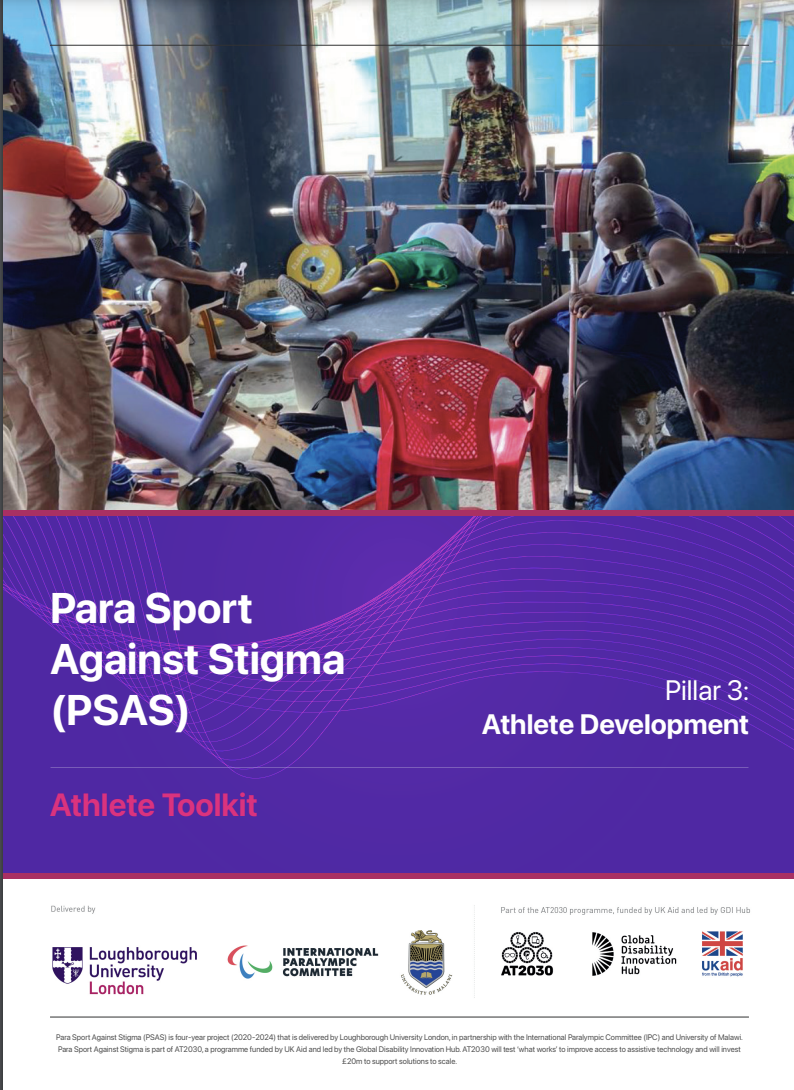
PSAS Athlete Toolkit
Global Disability Innovation Hub, Loughborough University, The International Paralympic Committee (IPC), University of MalawiSept. 30, 2024Ghana, Malawi and ZambiaAT2030 ResourcesThis toolkit is aimed at athletes with a disability who aspire to become world class and compete for their country at an international level. The toolkit is designed to provide useful information and step by step guides on important aspects of Para sport such as classification, competition, coaching and communication.
-
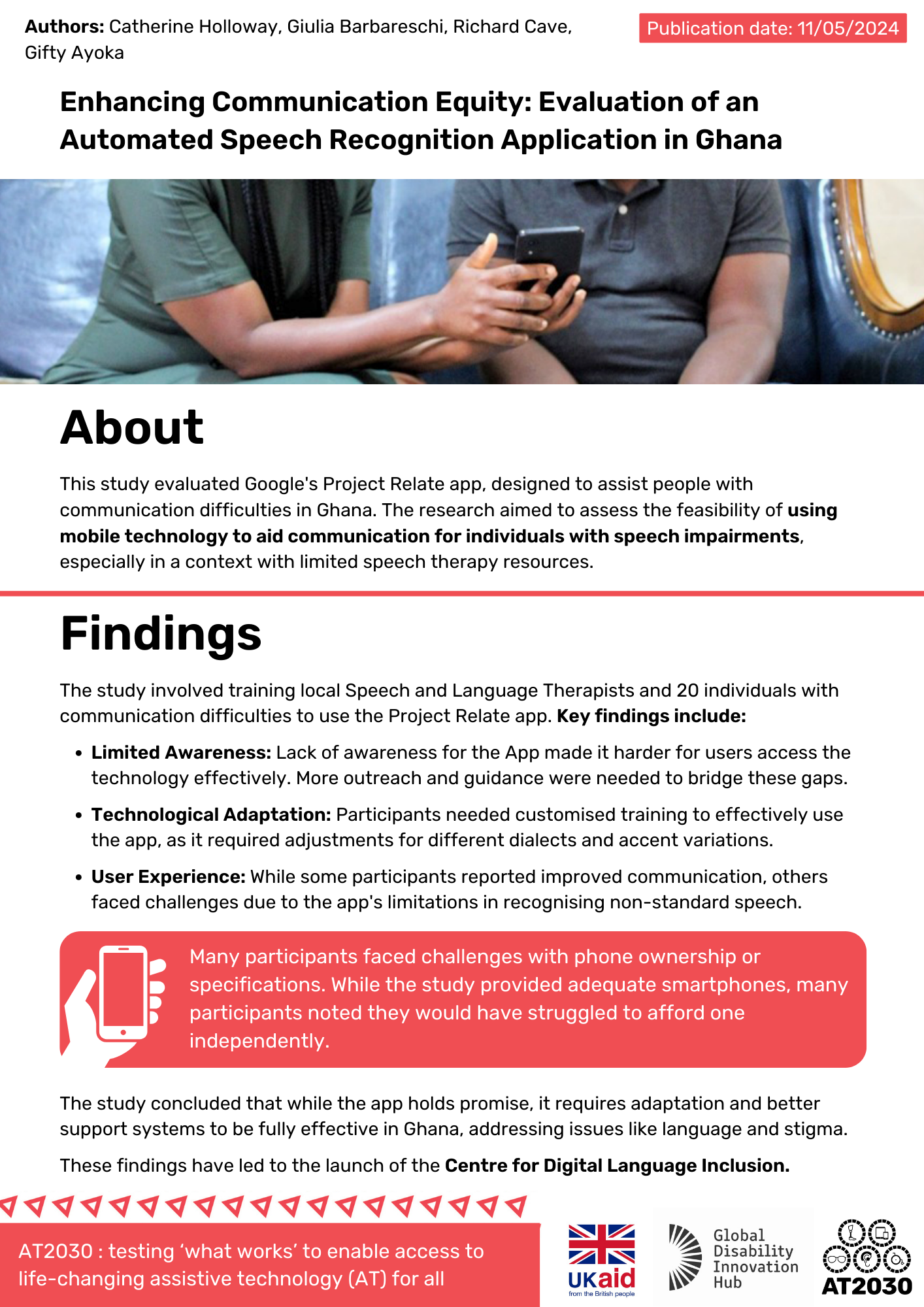
Enhancing Communication Equity: Evaluation of an Automated Speech Recognition Application in Ghana - Research Summary
Catherine Holloway, Giulia Barbareschi, Richard Cave, Gifty AyokaMay 11, 2024Research SummariesThis study assessed Google's Project Relate app in Ghana to assist individuals with speech impairments. Key findings included challenges with device access, the need for customised training, and limited awareness of the app. While some users benefited, others faced issues with speech recognition. The study highlighted the need for better support and adaptations, leading to the launch of the Centre for Digital Language Inclusion to address these challenges.